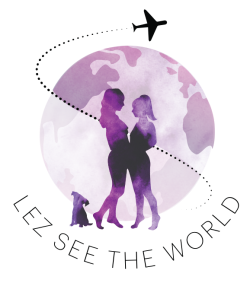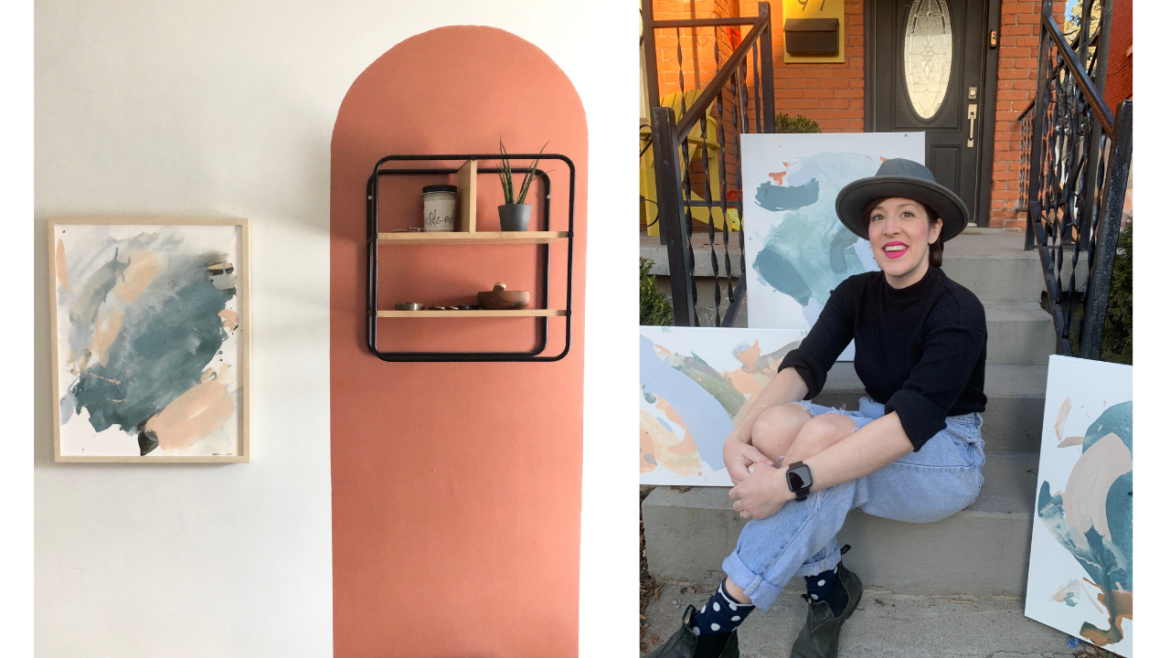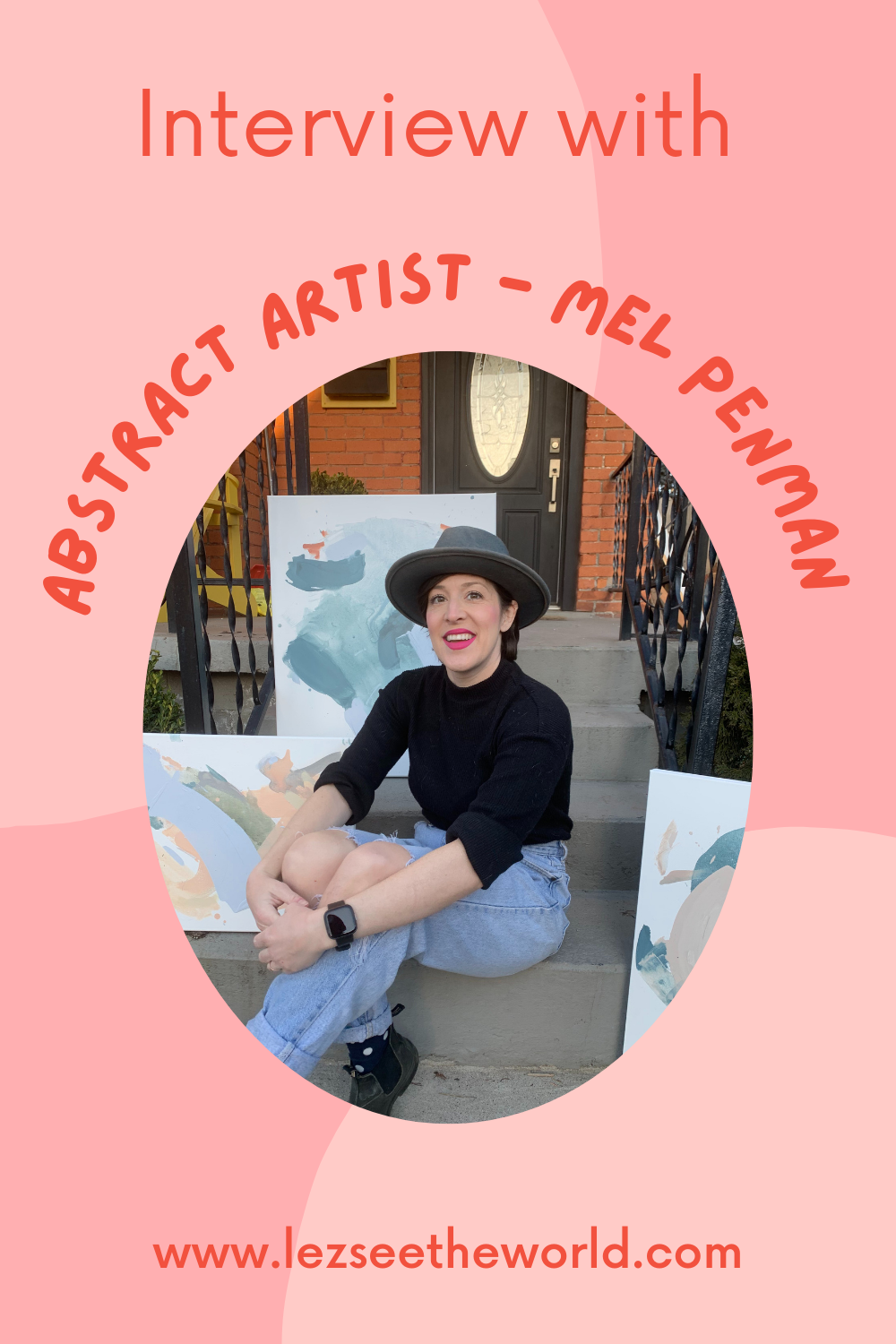One of our goals for 2021 is to start featuring a variety of new voices on this blog! We’ve started an interview series on Lez See the World that will highlight the experiences and perspectives of different people we connect with in the travel space and the LGBTQ+ community. We’re so excited to introduce our readers to these incredible humans!
This interview is with Mel Penman, a community mental health worker and queer abstract artist! We first connected with Mel through her wife Felicity a number of years ago when we were living in Toronto, and since then she’s become a close friend. We are so excited about the launch of her art business and we can’t wait to have one of her pieces hanging on our wall. We love how passionate Mel is about her work and how she uses art to support her own mental health and the mental health of others. We’re so excited to be interviewing her for the blog and to share her work with this community. Keep reading for our interview with Mel!
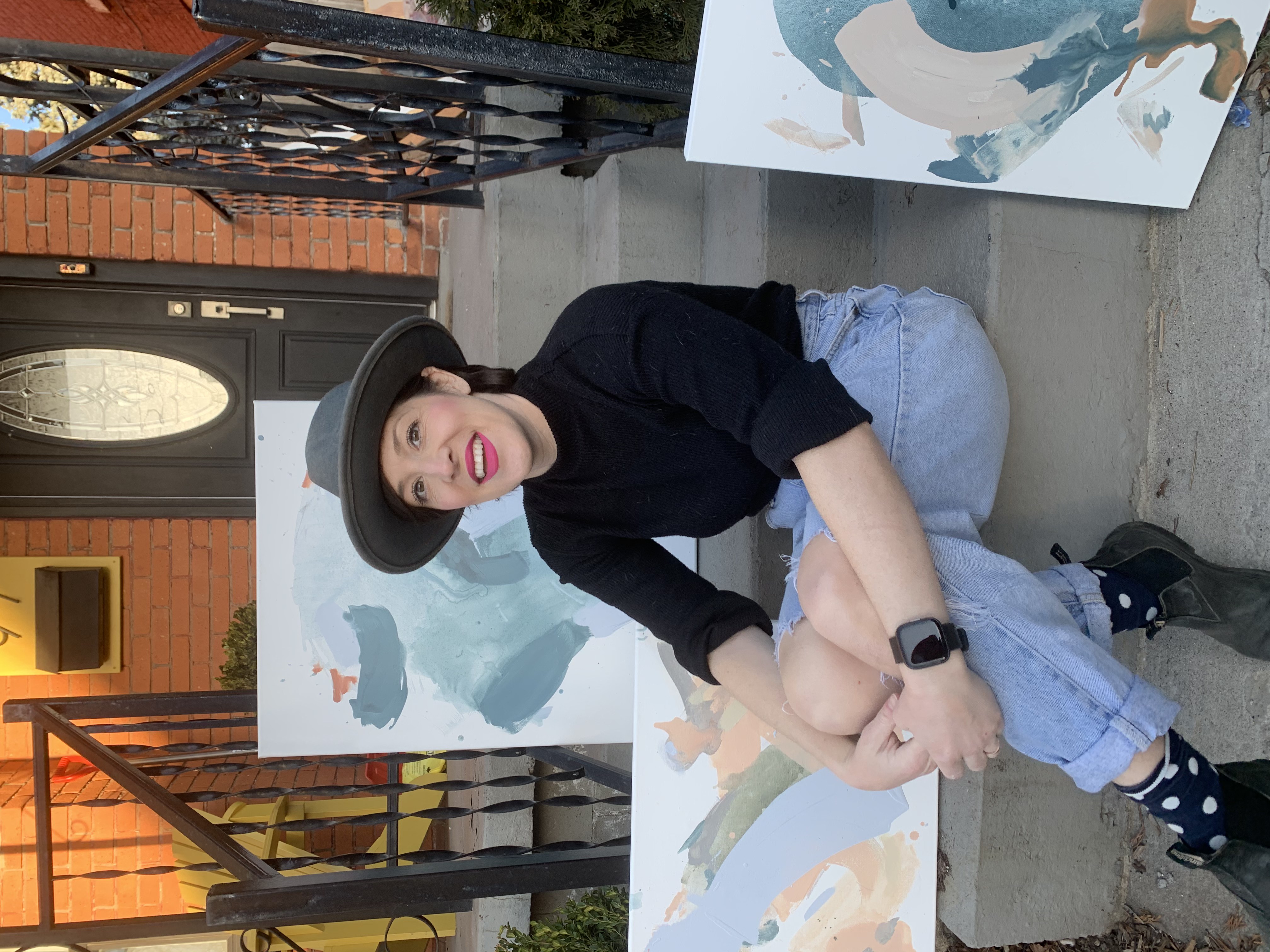
Mel Penman is a community mental health worker and queer abstract artist living in Hamilton, Ontario, Canada. Her passion is supporting folks who have complex mental health issues from all walks of life, including those living with HIV and substance use issues. Mel self-identifies as having lived with different mental health issues throughout her life including anxiety, depression, and difficulty managing her identity as a queer person in her adolescence. She uses art as a way to support her own mental health recovery, and wherever possible she utilizes art within her professional work as self-care strategies to help clients express themselves and cope with their symptoms. Mel wants to be able to change the stigma associated with mental health by having an open dialogue about it. When Mel isn’t working, she finds joy in spending time with her partner and their three rescued pups. She loves all things outdoors, sports, and travel.
You just launched your art business – Penman Paint. What made you want to start sharing your art online and how has the response been?
I did just launch my art business! What started out to be a therapeutic self-care strategy for me transformed into an art business over the pandemic. I felt that it was something I wanted to share with others, in terms of finding ways to cope with life stress and my own mental health. The response and feedback from friends and family really pushed me to consider sharing my art online. I wanted the focus of the business to be about breaking the stigma around discussing how mental health affects our lives, and that it’s okay to talk about what you do to manage your wellness. For me, it’s art!
We would love to hear more about your professional work in mental health. Can you explain a bit more about your background in this field and why it interests you?
I’ve been working for roughly 10 years in social services, supporting folks with complex mental health and addiction challenges. I have a specific interest in HIV care, LGBTQ+ communities and trauma. I was very fortunate to be able to work for a non-profit organization in Toronto within various programs over a 9-year period, always within addictions and case management support services. Recently, I have moved my work closer to home and am starting a new chapter at a hospital close to Hamilton, ON. I will continue my work within addictions through an outpatient community mental health team. I also bring a unique lens to the field sharing my own lived experience with mental health, my identity as a queer woman, and my family history.
We love that you’re a proud member of the LGBTQ+ community. Can you talk a little bit about your identity and experience as a queer woman?
I am proud about my identity as a queer woman! I feel very fortunate to be within a community both personally and professionally where I can be who I am safely. I would say that for me, coming to the realization of being a queer person was a complex journey. Through my adolescence, it was hard to know and feel comfortable being a queer person. My identity is something that took time to navigate, and it created a lot of anxiety for me. Thankfully I have a supportive network of friends and family who’ve been so accepting and I feel very grateful for that. In terms of my social work, I think that it allows clients to have a safe space to relate to another member of the LGBTQ+ community as they navigate their own journey with identity.
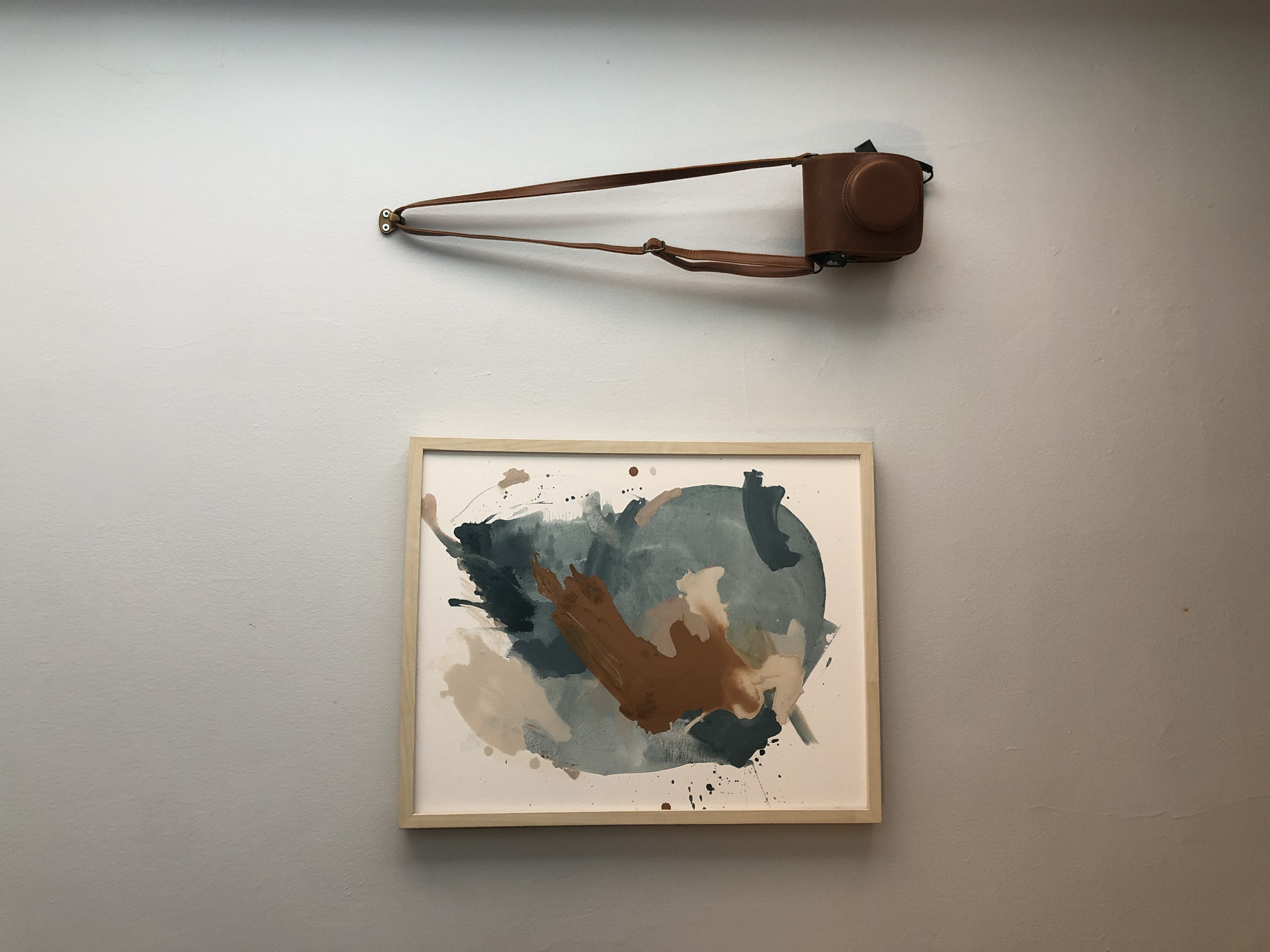
What is your process as an artist? Where do you draw your inspiration?
For me, the process as an artist is really grounded around self-regulation and coping with anxiety and stress. The process is about flow and feeling connected to the piece that I’m working on in the moment. I love being able to draw inspiration from colours and textures, nature, as well as any emotions I may be navigating. I love that art is an accessible tool that helps me ground myself and feel better. I love to utilize art within a therapeutic process with clients as well, and encourage others to find strategies that work well for them.
Can you talk about what materials you use as a painter and how you found your passion for abstract art?
I love to use a combination of acrylic and watercolour paint, in addition to mixed media tools like pencil crayons and pastels. But really with art, the sky is the limit. I have always had a passion for art but never really felt like I could make art or “be good at art”. It seemed inaccessible to me until I attended a mental health workshop training around the use of art as a means of processing trauma. I let go of what I thought art needs to be, I let go of the finished product, and connected to how you can feel while you do art. I think letting go of my own self doubt or what I thought art needs to be allowed me to become more passionate for abstract art.
Do you have any advice for people wanting to explore using art to support their mental health, especially during this pandemic?
Do it! I often say to clients, use whatever is around you. That could be house paints, markers, a pencil, clay, household items like tin foil etc, make up, whatever is there. You don’t need to spend a lot of money to explore art. Channel what you are feeling or use art to really zone out of what is on your mind. Art can be a really supportive tool for a means of processing thoughts and feelings. Don’t worry about making something beautiful or the finished product, just focus on how you feel in the moment or ground to the feeling of your hands moving. And if it’s not art that you connect to, find something that allows you to cope within your day in a healthy capacity.
Where can our readers find you, and where can they see your work?
Readers can find me online either on my website www.penmanpaint.com or my instagram page @penmanpaint.
Thank you so much Mel! If you’re interested in being interviewed or writing a guest post for Lez See the World, please contact us at info@lezseetheworld.com. We are interested in featuring a range of voices on this blog, and highlighting folks with a variety of experiences and perspectives that are different from our own. We can’t wait to hear from you!
